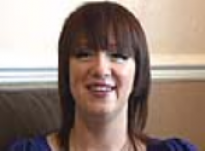Kerry - Interview 04

More about me...
Kerry could feel something under her chest bone that felt like a grain of sugar. She felt generally unwell and was losing weight. A GP suggested she had indigestion but she felt increasingly ill and became breathless so returned to the GP. She was sent for a chest x-ray, which showed a mass in her chest. During a 4 week period in which she went to the hospital repeatedly for tests the mass in her chest grew and swallowing became difficult. A lymph node biopsy was arranged but cancelled because they couldn’t find any swollen lymph nodes so she was sent home again. She felt progressively worse, developed a cough and had to sleep sitting up because of the mass in her chest. One night her husband decided to take her to casualty where they said that her left lung had filled with fluid, which they drained and analysed the fluid and told her she had acute lymphoblastic leukaemia. She felt relieved to finally have a diagnosis.

